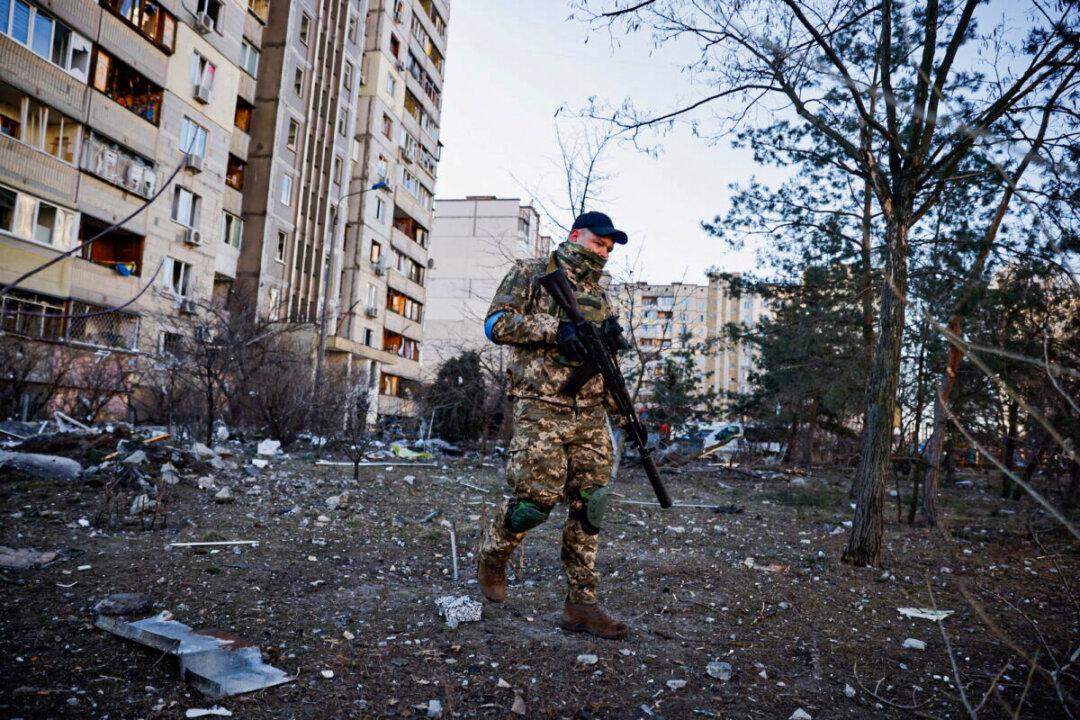British intelligence said Wednesday that some Russian units facing big losses have returned home or went to neighboring Belarus, while Western officials expressed doubt about Moscow’s pledge to scale down military operations around Kyiv and Chernihiv.
“Russian units suffering heavy losses have been forced to return to Belarus and Russia to reorganize and resupply,” Britain’s Ministry of Defense said in a March 30 update.





